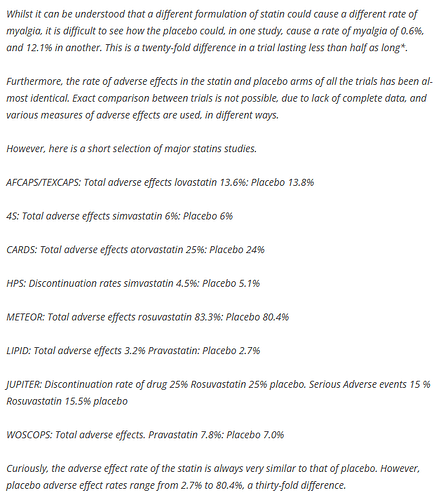The stats cited in this CNBC article really cracked me up.
In short: not only did those on a placebo lose MORE weight than those on the test drug, but while 50% of those on the drug couldn’t tolerate it and stopped, a full 40% of the subjects taking the placebo couldn’t tolerate that either!
(Perhaps this proves the danger of sugar pills?  )
)
Pharma science crawls forward…
"All dose sizes of Pfizer’s pill showed “statistically significant reductions” in body weight ranging from 6.9% to 11.7% at 32 weeks, and from 4.8% to 9.4% at 26 weeks. Meanwhile, patients on a placebo lost 8% to 13% of their body weight at 32 weeks and 5% to 9.5% at 26 weeks, Pfizer said.
“The company said high rates of adverse events were observed among patients in the study, with up to 73% experiencing nausea, up to 47% vomiting and up to 25% experiencing diarrhea. More than 50% of patients across all dose sizes stopped taking the pill, compared to roughly 40% among those on the placebo, according to Pfizer.”
Source:





